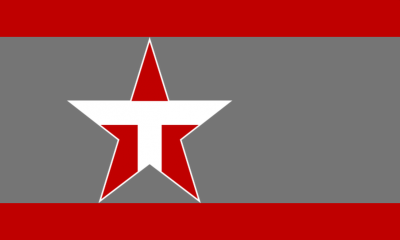Fujiko Development Corp Sidebar
- Main Article: Fujiko Development Corporation
- Parent Corporations: Ryu Keiretsu, Nepleslian Research and Manufacturing
- Factions: Nepleslian Reds, Yamatai Star Empire
News
Territorial Administration Services
- Main Article: Territorial Administration Services
Fujiko Trade and Cultural Exchange Office (FTCEO)
- Main Article: Fujiko Trade and Cultural Exchange Office
Fujiko Security Directorate
- Main Article: Fujiko Security Directorate
FDC Research and Development
- Main Article: Fujiko Development Corporation R&D Projects

